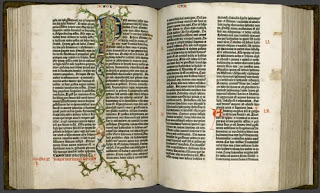
In anticipation of the New Year, I'd like to hear your resolution for a work of literature that you're planning to read sometime in 2009, along with an explanation of why you feel you need to read it.
Having been a blogger since my early childhood, I have decided to incorporate this useful tool into my teaching. Instructions: At the end of each month, I will award you 2 points for each meaningful post, with a maximum score of 12/10. Be sure to read what others have written - no credit for repetition.


 (Woody Allen)
(Woody Allen) 

In many works of literature, a physical journey -the literal movement from one place to another - plays a central role. Choose a novel, play, or epic poem in which a physical journey is an important element and discuss how the journey adds to the meaning of the work as a whole. Avoid mere plot summary.
(Briefly sketch out an argument for addressing the prompt above by referring to a specific work of literary merit.)
